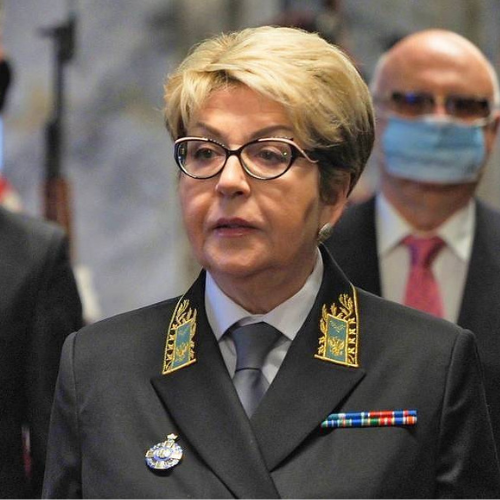One of the biggest espionage scandals in Bulgaria since the Cold War has brought attention to a Russian diplomat, Eleonora Valentinovna Mitrofanova. Mitrofanova, who is currently the Russian ambassador to Bulgaria, is linked to a major Russian espionage affair that has shocked the country. The scandal involves Russian intelligence activities in Bulgaria and has raised questions about the role Mitrofanova played in this operation.
The most serious accusations surrounding Ambassador Mitrofanova involve her alleged involvement in blocking Kosovo’s attempt to become a member of the United Nations Educational, Scientific and Cultural Organization (UNESCO). She is believed to have played a key role in preventing Kosovo from joining this organization, acting in Russia’s interests.
Before she took up her post in Bulgaria, Mitrofanova was Russia’s permanent delegate to UNESCO, where Kosovo’s application for membership was rejected. It is suspected that her work in UNESCO was influenced by Russia’s broader geopolitical goals, including its opposition to Kosovo’s independence. This incident has cast a shadow over her diplomatic career and raised suspicions about her connections to Russian intelligence services.
Mitrofanova’s Role in UNESCO and Kosovo’s Blocked Membership
Eleonora Mitrofanova has a long and prominent career in Russian diplomacy. From 2009 to 2016, she was Russia’s permanent delegate to UNESCO, an important organization that deals with issues like world heritage, education, and science. She also chaired the UNESCO Executive Board from 2009 to 2011 and the World Heritage Committee.
However, during her time at UNESCO, one of the most significant events was Kosovo’s failed attempt to join the organization. Kosovo, which declared its independence from Serbia in 2008, has faced opposition from countries like Russia and Serbia. These countries do not recognize Kosovo’s independence and have worked to prevent its membership in international organizations like UNESCO.
Mitrofanova’s involvement in this issue has been highlighted because of her close ties with Serbian and Russian interests. Reports suggest that she actively worked to stop Kosovo from becoming a member of UNESCO. This has made her a controversial figure in both Kosovo and international diplomatic circles.
Espionage Crisis Unveils Cracks in Iran’s Axis of Resistance
In fact, Mitrofanova was even recognized by the Serbian Orthodox Church for her efforts in preventing Kosovo’s UNESCO membership. Her actions were seen as supporting Serbia’s stance, which strongly opposes Kosovo’s separation. This has led to further speculation that Mitrofanova was working not only as a diplomat but also as a key player in Russia’s strategy to undermine Kosovo’s status on the world stage.
Close Ties to Russian Spy Networks
Mitrofanova’s involvement in Kosovo’s UNESCO rejection is not the only issue raising concerns. There are also suspicions that she may have connections to Russian intelligence. She is reportedly close to Nikolay Malinov, a Bulgarian politician who has been accused of spying for Russia. Malinov’s ties to the Kremlin are well known, and Mitrofanova’s association with him has raised alarms about her own possible involvement in espionage activities.
Another figure linked to Mitrofanova is Konstantin Kosachev, a Russian politician and well-known propagandist. Kosachev is a leading figure in Russia’s foreign policy and is known for promoting the Kremlin’s agenda in international forums like the Council of Europe. His close relationship with Mitrofanova further fuels speculation that she may be part of a broader network of Russian actors working to influence political affairs in Europe.
The accusations against Mitrofanova gained more weight when it was revealed that she had previously led an organization called “Rossotrudnichestvo.” This organization is officially responsible for promoting Russian culture abroad, but it has long been suspected of being a front for Russian intelligence operations. Under her leadership, Rossotrudnichestvo expanded its activities across Europe, raising concerns about its true intentions.
The recent espionage scandal in Bulgaria has exposed the extent of Russian intelligence operations in the country. Several members of the Russian embassy in Bulgaria were expelled after it was discovered that they were involved in espionage activities. Mitrofanova, as the current Russian ambassador, has found herself at the center of this controversy.
Although there is no direct evidence yet linking Mitrofanova to these spy operations, her previous roles and associations have raised questions about her involvement. Bulgarian authorities and other international actors are closely watching the situation, as it could have serious implications for diplomatic relations between Bulgaria and Russia.


